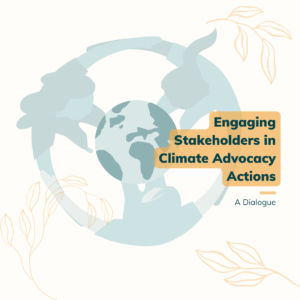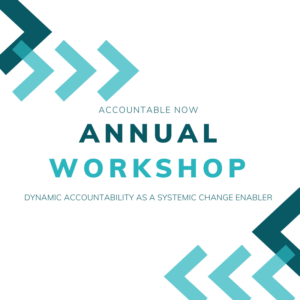NGOs work in a highly multilingual and multicultural environment. There are serious practical challenges in making Dynamic Accountability a reality when NGOs and their stakeholders do not speak a common language, or share a cultural frame of reference.
So how can NGOs improve their communication capacity in order to meet their commitments to listening, participation and feedback? In this interactive webinar, Drs Angela Crack and Wine Tesseur explored these issues based upon a major three-year research project involving dozens of NGOs in international development. They discussed communication problems often experienced between NGOs and local communities, and considered how these have a negative impact on building relations of trust.
Catch up and get informed with the conversation we had on recommendations for policy and practice to help NGOs enhance their linguistic inclusivity and demonstrate respect for local cultures – helping us understand the role of language and multiculturalism across all of our 12 accountability commitments.
Dr Angela Crack, University of Portsmouth
Dr Wine Tesseur, University of Reading
Your questions:
Q1: Wouldn’t it be better to use professional translators and interpreters who grew up in the countries in question but now live and work in the UK, that would address impartiality issues in interpreting and translation?
Wine: This would be one possible approach, but it would come with its own challenges. Some of the languages that NGOs work in are spoken by a limited number of people on a local level only, so it would be challenging to find people who speak those languages in the UK – and who, on top of that, have been professionally trained as translators or interpreters. As we mentioned in the presentation as well, in many cases interviewees (of INGOs and local partner organisations) actually said they preferred working with people embedded in the local context, as it makes it easier to establish trust with the local communities. In sum, I don’t think there is one ideal solution here, as each one comes with its own challenges in terms of skewed power relationships. What is key here, I would say, is that INGOs are aware of the power dynamics e.g. in conversations mediated by interpreters, and that they take time to discuss the most appropriate solution for a specific context.
Q2: Interpreters in Malawi: Did you experience the fact that interpreters were using somehow some “narrator skills” (skills typical of oral poets and griots) e.g. adding by his own stories and gestures, songs and so on to the message?
Angela: It was certainly the case that interpreters used narrator skills, particularly the use of stories that resonated in the local context. One of my interviewees described Chichewa as a ‘shallow but poetic’ language, meaning that although it has a limited vocabulary, it has rich potential to convey meaning through metaphors, similes and extended narratives. One of the local NGOs that I interviewed have developed songs and ‘jingles’ to encapsulate the message behind their campaigns.
Your Feedback:
Our response:





Accountable Now is a global membership platform. We support our members – and civil society at large – to be more transparent, responsive, impact-focused, and locally led. Interested in becoming a member?
Accountable Now is a member of Accountability Lab’s global translocal network.